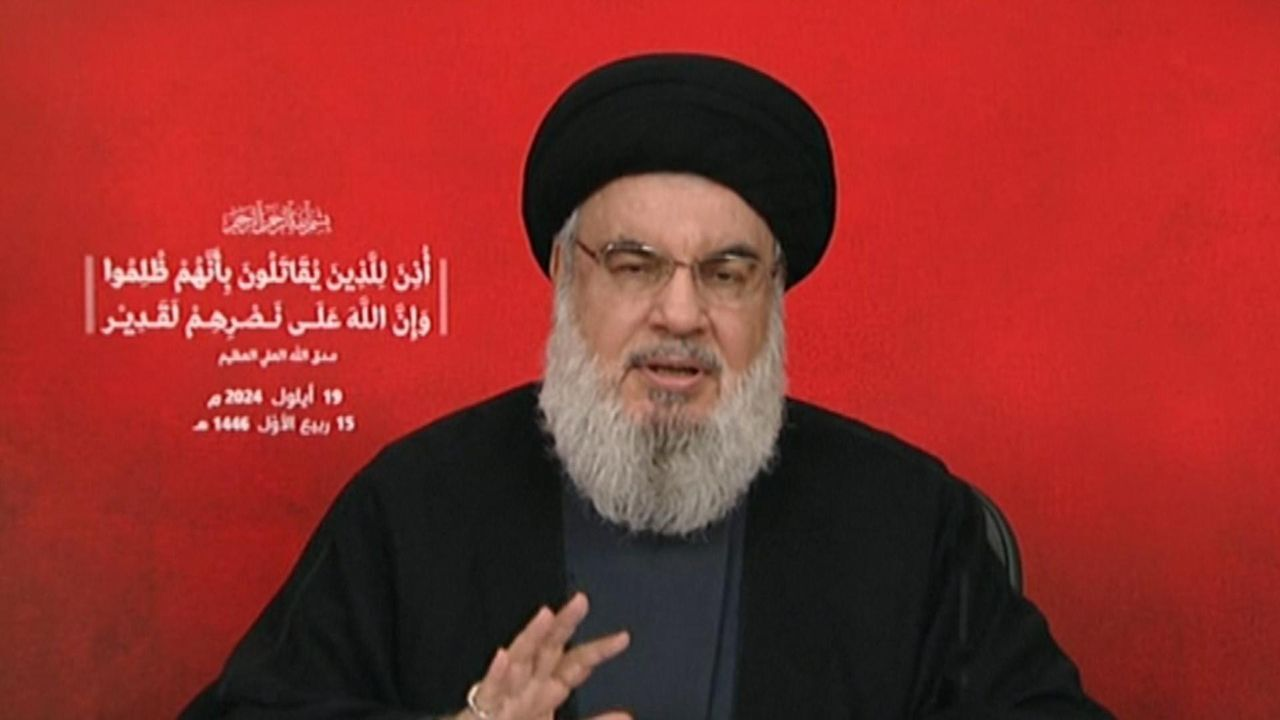Hassan Nasrallah, the leader of Hezbollah, has officially declared war against Israel following a series of deadly attacks involving pagers and walkie-talkies. These attacks, which have resulted in the deaths of at least 37 individuals and injured over 2,900, have crossed what Hassan Nasrallah describes as “all red lines.”
In his first televised address since these unprecedented events, Hassan Nasrallah emphasized that Hezbollah will retaliate and remains steadfast in its support for Palestinians in Gaza. This declaration marks a significant escalation in the ongoing conflict between Hezbollah and Israel.
The Context of the Attacks
The attacks against communication devices in Lebanon and Syria have heightened fears of an impending all-out war. Hassan Nasrallah condemned these incidents as a “terrorist act” and a blatant “declaration of war” against Lebanon and its sovereignty. He noted that the assaults targeted civilian areas, including hospitals, markets, and residential neighborhoods, aiming to inflict maximum casualties.
Read : Hezbollah Launches 55 Rockets Towards Israel
With over 287 individuals in critical condition, the humanitarian impact of these attacks is staggering. The nature of the assaults—specifically targeting communication technology—raises serious concerns about supply chain security and the safety of civilian life in the region. The Iranian-backed group accuses Israel of deliberately attempting to destabilize Lebanon and undermine its resistance movement.
Hezbollah’s Commitment to Retaliation
In his address, Hassan Nasrallah reaffirmed Hezbollah’s commitment to support the Palestinian cause, stating that the group would continue its fight against Israel “no matter what the consequences.”
He acknowledged the unprecedented scale of the attacks while asserting that they would not deter Hezbollah’s resolve. The group’s infrastructure and command capabilities remain intact, he claimed, despite the recent blows.
Israel has remained largely silent on the allegations of responsibility for these attacks, which has been consistent with its previous responses to Hezbollah’s claims.
Read : Will Fight With No Rules If Israel Wages War on Lebanon: Hezbollah
Israeli leaders have ramped up their rhetoric regarding potential military operations aimed at Hezbollah, indicating a desire to neutralize perceived threats to their security. As tensions rise, the region finds itself on the brink of further escalation.

Implications for Future Conflicts
As the situation unfolds, analysts predict an impending retaliation from Hezbollah, although specific details remain unclear. Observers note that while Hassan Nasrallah’s defiance is evident, the attacks represent a significant setback for the group.
The ambiguity surrounding Hezbollah’s response raises questions about the strategic calculations at play. Will the group strike back immediately, or will it wait to carefully assess the situation?
Marwan Bishara, a senior political analyst, highlighted that the recent attacks could lead to more escalatory actions in the coming days. However, as Ali Hashem reported from Lebanon, the uncertainty surrounding Hezbollah’s future actions leaves many in suspense.
Hassan Nasrallah’s speech did not provide explicit details about how or when Hezbollah might retaliate, but it did emphasize a commitment to accountability within the organization.
The Regional Impact of Nasrallah’s Declaration
The ongoing conflict between Hezbollah and Israel has far-reaching implications for the region. The return of violence in Lebanon could destabilize the fragile political landscape, further complicating humanitarian efforts and escalating tensions with neighboring countries. The impact on civilian lives is profound, as repeated cycles of violence exacerbate an already precarious situation in Lebanon.
Hassan Nasrallah’s declarations signal a new chapter in this conflict, one that could potentially engulf the region in a broader military confrontation. As Israeli forces continue their operations against Hezbollah targets in Lebanon, the situation remains tense and unpredictable.
The future of this conflict hinges on the actions of both Hezbollah and Israel, as well as the responses of international actors concerned about regional stability. As the dust settles from the recent attacks, the eyes of the world remain focused on Lebanon and the ongoing struggle for power and influence in this volatile region.

